Practicum & Internships
- Inpatient/outpatient clinics & hospitals
- School counseling centers
- Private practice settings
- Forensic-related placements

Integrate education in clinical psychology with specialized training in criminal justice theory, practice, and challenges with our unique clinical psychology doctoral (PsyD) and criminal justice master's (MCJ) dual degree program.
Dual Degree
Hybrid (Online & On Campus)
PsyD - 120
MCJ - 24
5 Years
As a PsyD/MCJ student, you'll earn both a doctorate of psychology and a master's in criminal justice in five years.
You'll begin in our nationally recognized PsyD program, where you’ll develop expertise across a range of clinical applications, from applied psychology to consultation and evaluation. Through a practicum placement, internship rotations, and a research dissertation, you'll prepare for work as a leading practitioner and scholar.
Along the way, you'll integrate the study of criminal justice in online courses that prepare you to work in a variety of psycho-legal settings. When you graduate, you'll have the foundational theories and specialized training across disciplines necessary to influence the criminal justice system with your clinical psychology expertise.

The doctoral degree in clinical psychology program and exclusively-affiliated internship are accredited by the Commission on Accreditation of the American Psychological Association (750 1st Street, NE, Washington, DC 20002, 202-336-5979).
In our PsyD/MCJ program, you'll learn about and complete practica in areas of treatment and assessment in prison and court systems, along with interventions relevant to law enforcement institutions and administration and management within local, state, and federal prison systems.
Within five years of full-time study, you'll complete rigorous training at the Institute for Graduate Clinical Psychology leading to the PsyD while completing criminal justice coursework through electives, summer courses, and relevant field experience.
Additional professional development training in workshops and mini courses ensures you'll graduate a highly-skilled clinical psychologist prepared to take on meaningful managerial and leadership roles in criminal justice-related institutions.
View the Loading... for curriculum and coursework requirements.
At Widener, a unique clinical and internship experience is embedded in the PsyD degree curriculum.
Year 1: Pre-Practicum
The pre-practicum training is multi-modal and experiential. It offers students opportunities to learn and practice skills that are foundational to the practice of professional psychology.
Years 2–3: Practicum Training
The practicum-level placements are designed to familiarize the students with a variety of clinical settings. Each practicum offers progressively more responsibility and patient–staff interaction.
Years 4 & 5: Internship Training Program with three day a week clinical rotations
Most doctoral students in clinical psychology enter the Association for Psychology Postdoctoral and Internship Centers (APPIC) match process to find a pre-doctoral internship. In contrast, our PsyD program offers a unique and fully integrated internship that is accredited by the Commission on Accreditation of the American Psychological Association (750 First Street NE, Washington, DC 20002, 202-336-5979).
This means that rather than enter the APPIC match to find an internship; our students are guaranteed a local internship placement through our in-house network of outstanding internship rotations.
Doctoral education alone is not sufficient for licensure in the United States. In addition to requiring specific educational criteria, all states require candidates for licensure to pass a national exam after completing graduate education (the Examination for Professional Practice in Psychology [EPPP]), and many states also require additional experiences for licensure, including supervised post-doctoral experiences, criminal history background checks, and personal ethical/moral references. Specific requirements for each state vary, and are developed and monitored by State Boards of Psychology. A general list of State Boards and contacts can be found on the website of the Association of State and Provincial Psychology Boards.
The curriculum provided by Widener’s Institute for Graduate Clinical Psychology meets state educational requirements for licensure as listed below. It is strongly recommended that students who expect to pursue licensing in a particular state reach out to the licensing board to confirm specific licensing requirements. The information below is accurate, as best as could be determined based on published records of state licensing requirements, as of June 2021.
2021 median annual wage salary of a specialized clinical hospital psychologist
93% of job ads in psychology that specified a minimal educational requirement asked for a doctoral degree
In your first year, you’ll dive into clinical psychology training that includes courses on theory and technique, laboratory activities, and discussion groups to process the nuances and challenges of clinical work.
Practicum placements continue the intensive clinical training through the third year of the program. All students are also admitted to our APA-accredited internship at the time of doctoral program admission, which translates to a placement in our exclusively-affiliated and integrated internship in years four and five.

You’ll encounter countless opportunities to serve. Whether you engage in service projects with local organizations or serve community members in one of our on-campus clinics, you’ll go beyond your formal training in psychology as you meet the needs of your new neighbors.

Your education will stretch beyond the classroom as you build relationships with accomplished guest speakers, driven classmates, successful alumni, and PsyD/MCJ faculty who infuse their teaching with the latest trends, technology, and thinking. By rubbing shoulders with these industry insiders, you'll graduate with a meaningful network of insiders that will follow you long after graduation.
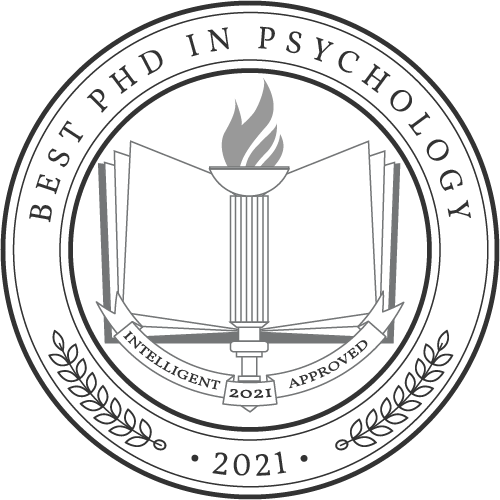
Based on its flexibility, faculty, course strength, cost, and reputation
On the list of Editors' Choice 50 Best Accredited PsyD Programs for 2022
"Our criminal justice programs provide students with one-on-one individualized attention to nurture the student's growth academically and professionally. I enjoy the small class sizes and teach by facilitating discussions and welcoming diverse worldviews. This pedagogy fosters student participation, listening, and critical thinking skills."
I enjoy mentoring students inside and outside the classroom. It is a pleasure to watch individuals grow from being criminal justice students to criminal justice professionals, influencing and bettering the system. Seeing their success as alumni is so rewarding for me! In addition, our flexible curriculum allows students to direct their academic career in a way that makes the most sense for their career goals. I am also excited about our accelerated 4+1 program that allows strong students to complete an undergraduate and graduate degree in five years.
The clinical training and supervision that you're most likely to receive here could be invaluable to your development as a clinician. The partnerships that you could make in the tri-state area and beyond would be lifelong, diverse, and in line with your future areas of focus or expertise.
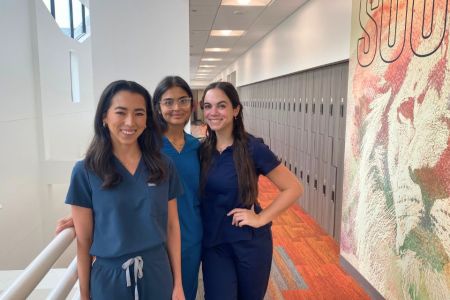
The clinical anatomy lab provides graduate health science students with hands-on access to study anatomy, master techniques and build confidence ahead of practice. In this first-person narrative, physician assistant students Sarah Connors, Jordan Li and Vrunda Patel share how the experience not only teaches them about the body, it deepens their understanding of the human experience.

By telling her story of surviving anxiety and depression, Isabelle Nicholas ‘28, a graduate clinical psychology student and the crowned Miss New Jersey 2025, is giving others the tools and resources to find their voice and reach recovery.
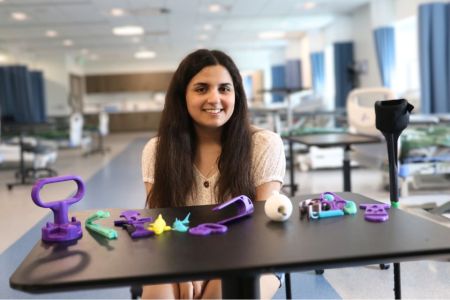
In Widener’s occupational therapy program, Lydia Aruffo '25 leveraged innovative 3D printing technology and her health science education to deliver creative, adaptable and cost-effective solutions for clients living with a rare disease.
Our admissions and financial aid teams are here to support you every step of the way. Have a question? Ask away!
To begin the journey toward a PsyD/MCJ dual degree, students apply to the PsyD program first. During the second semester (first year) of the PsyD program, students in good standing may apply to the master's in criminal justice program.
PsyD admissions requirements:
The PsyD/MCJ program is closed for 2023. Deadline dates for 2024 will be available at a later time.
All supplemental materials must be submitted through the online PSYCAS (Psychology Centralized Application Service) system:
Interviews
If you are selected as a top candidate for the PsyD program, you will receive an invite to one of four Admissions Interview Days, which will include an individual interview, tour, and information sessions. At this time, our plan is to hold interviews in person on campus.
Widener transfer applicants follow the same application process as general applicants. After you apply, our admissions team will work with you to determine whether completed undergraduate and graduate coursework will count towards foundation/core courses that can be waived or substituted.
Up to one course may be waived per semester towards Widener's PsyD program. To be eligible, the waived course must be replaced with another elective. Waived courses do not count as advanced standing because the PsyD program does not offer advanced standing and is a five-year program.
Widener University accepts up to 6 transfer credits for its criminal justice program which may be applied as electives. To be eligible, the courses must've been completed within the last 5 years and the grade received must be a B or higher.
Widener University serves as a "second home" for students from around the world. We are located just outside of Philadelphia and close to New York City and Washington, D.C.—offering many unique professional and personal opportunities to explore.
Want to know what it's like to be an international student on campus or need assistance navigating English proficiency requirements? We're here to help, and our international admissions director will support you through the application process. This support doesn't end with admissions—our International Student Support team will serve as a valuable resource throughout your Widener journey—meeting Visa/immigration requirements, getting acclimated to campus, and much more.
Learn more about applying as an international student
Learn more about life at Widener as an international student
Because Widener is a private institution, we're able to offer financial assistance that brings our education within reach for individuals who might otherwise not be able to afford it.
You might be surprised how much we are able to offer.
Getting started is easy. Simply apply to Widener and submit your FAFSA to be automatically considered for scholarships and grants. "FAFSA" stands for the Free Application for Federal Student Aid and helps identify whether you are eligible for aid awarded by Widener, the government, and other sources. Our school code is 003313.
In order to receive a financial aid offer, students must meet certain eligibility requirements. Here are the general eligibility requirements for most financial aid programs:
Learn more about applying for financial aid as a graduate student
Simply apply to Widener and complete the financial aid process to be automatically considered for scholarships and grants. Because Widener is a private institution, we are able to offer financial assistance that brings our education within reach for individuals who might otherwise not be able to afford it. You might be surprised at how much we are able to offer in assistance.
In order to receive your part of the financial aid pie, all you have to do is submit your FAFSA. "FAFSA" stands for the Free Application for Federal Student Aid and helps identify whether you are eligible for aid awarded by Widener, the government, and other sources.
It's possible at Widener! Students enrolled in a PsyD dual degree program ONLY pay for PsyD tuition and a dual enrollment fee. That means the second degree is on us!
Widener's stackable certificates enable you to achieve your master's or doctoral degree by saying yes to one affordable certificate at a time. Here, you'll follow a more relaxed timeline and course load while earning certificate credits at a significant cost saving. Most of our certificate courses cost 50% less than master's courses.
Learn more about stacking certificates
Widener offers a limited number of graduate assistantships to enrolled students. GAs receive tuition assistance for their work. Once you're a student, contact your program director for more information.
A limited number of university-based scholarships are made available to enrolled graduate students made possible directly from our academic department or thanks to the generosity of university donors. No extra steps are needed to be taken prior to admission. Once enrolled, contact your program director to learn more.
Widener University also partners with many local organizations and corporations to offer discounted tuition and other incentives to their employees. Don't see your company on the list? Ask them to become a partner. In addition, employers often offer educational reimbursement benefits. We encourage you to explore these opportunities and will be glad to provide any necessary documentation.
If you graduated with a degree from Widener, you may qualify for a 20% tuition discount. The first step to see what you qualify for is to submit your application. Widener offers students many paths to savings, and while we don't offer "double discounts", we'll make sure you'll get the biggest financial benefit you're eligible for. Only students who have completed an associate's, bachelor's, master's, or doctoral degree are eligible. Students who have pursued a 4+1, 4+2, or 3+3 pathway, graduate assistantship, Widener-funded scholarship, or other tuition discount may not be eligible if the financial discount granted surpasses 20%.
| Psychology (Full-Time Doctoral) | Per Semester | Annual |
| Psychology - First Year | $21,852 | $43,704 |
| Psychology - Fall 2025 Cohort | $20,610 | $41,220 |
| Psychology - Fall 2024 Cohort | $19,932.50 | $39,865 |
| Psychology - Fall 2023 Cohort | $19,352 | $38,704 |
| Psychology - Fall 2022 Cohort | $18,697.50 | $37,395 |
| PSY D Joint Program Fee (MBA, MCJ, HSED) | (no semester fee) | $1,028 |
*Joint degree candidates pay a total of five years of full-time tuition at the rate of the Institute for Graduate Clinical Psychology. Students who complete the Master of Criminal Justice courses within the 18 credits allowable per semester (except during the first two years, during which students are allowed to take only 15 credits per semester) will do so without added tuition. All criminal justice courses above the 18 credits, and those taken after five years in the PsyD program will be subject to additional tuition charges at the College of Arts and Sciences semester-hour rate. A fee will be charged each semester (fall or spring) in which the student is enrolled in the joint degree program.
Tuition rates are subject to change. Official costs for your first year will be determined at time of enrollment.
We offer a variety of virtual events to get to know Widener and meet with faculty and admissions staff.
We offer a variety of virtual events to get to know Widener and meet with faculty and admissions staff.
Have a question about Widener? Drop us a line and an admissions counselor will be in touch. We're always happy to help!
All applications and supplemental materials are submitted through a centralized application service (CAS) system.
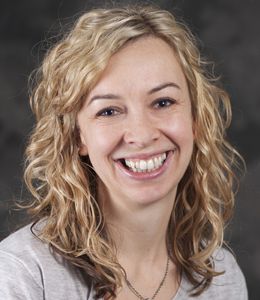
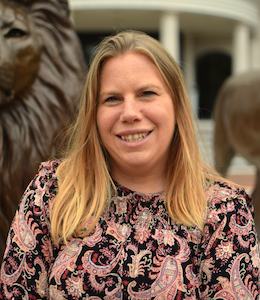
Hyatt Hall, Office #320
